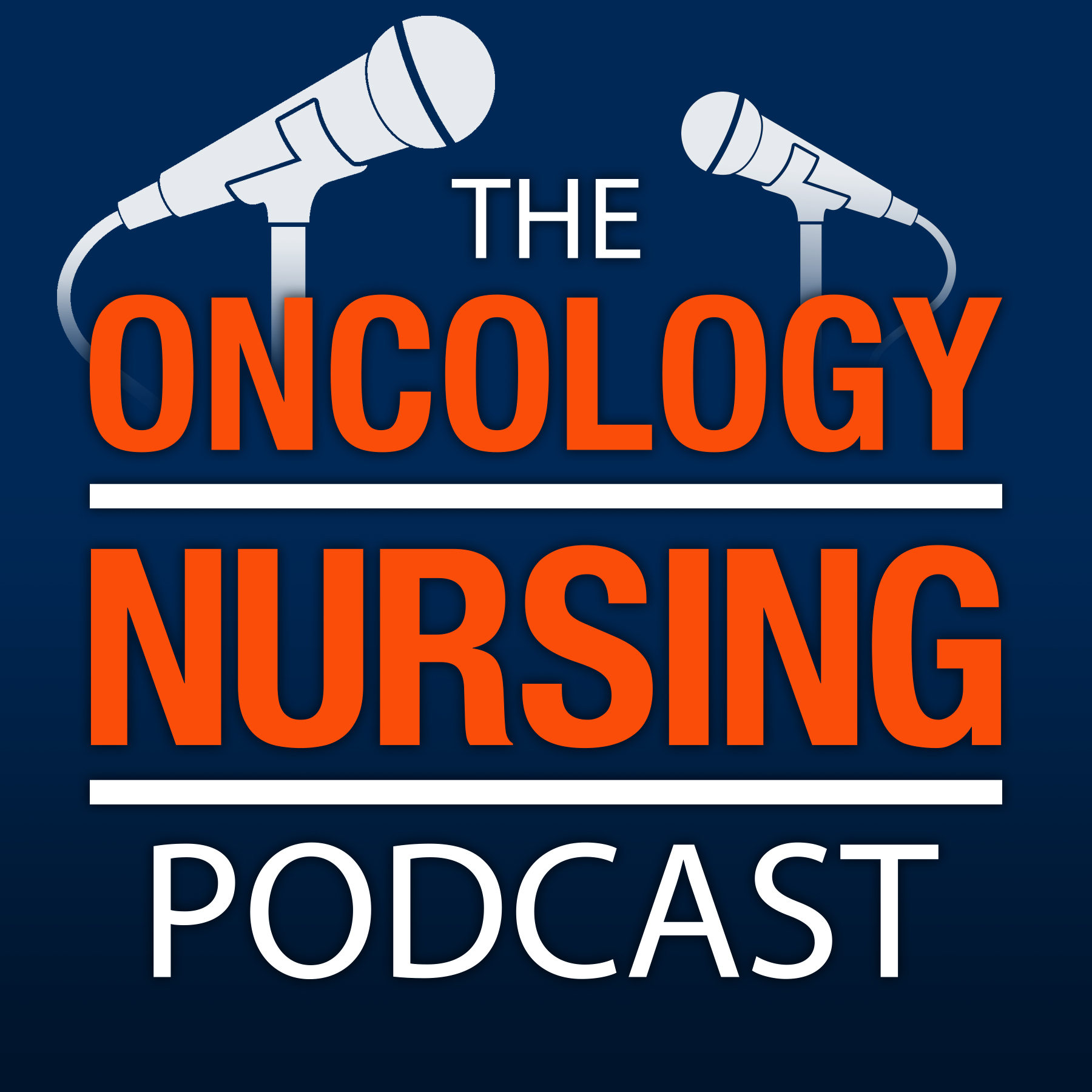
Episode 329: Pharmacology 101: BRAF Inhibitors

The Oncology Nursing Podcast
Shownotes Transcript
“One of the things that’s really challenging with these BRAF inhibitors, plus MEK inhibitors, is that there’s a huge scope of potential toxicity, and they’re not all going to happen. So I think that there’s a real need to educate patients that they need to work with us so that when a toxicity develops, we can help address it. We can help think of strategies, whether it be medication strategies or whether it be other types of strategies, to make them feel better,” Rowena “Moe” Schwartz, PharmD, BCOP, FHOPA, professor of pharmacy practice at James L. Winkle College of Pharmacy at the University of Cincinnati in Ohio, told Jaime Weimer, MSN, RN, AGCNS-BS, AOCNS®, manager of oncology nursing practice at ONS, during a conversation about the BRAF inhibitor drug class.
Music Credit: “Fireflies and Stardust)” by Kevin MacLeod
Licensed under Creative Commons by Attribution 3.0
Earn 0.5 contact hours of nursing continuing professional development (NCPD) by listening to the full recording and completing an evaluation at courses.ons.org by September 13, 2026. The planners and faculty for this episode have no relevant financial relationships with ineligible companies to disclose. ONS is accredited as a provider of nursing continuing professional development by the American Nurses Credentialing Center’s Commission on Accreditation.
Learning outcome: Learners will report an increase in knowledge related to BRAF inhibitors.
Episode Notes
Complete this evaluation for free NCPD).
Oncology Nursing Podcast episodes:
Pharmacology 101 series)
Episode 242: Oncology Pharmacology 2023: Today’s Treatments and Tomorrow’s Breakthroughs)
ONS Voice articles:
First-Line Combination Immunotherapy Prolongs Survival in BRAF Advanced Melanoma)
Predictive and Diagnostic Biomarkers: Identifying Variants Helps Providers Tailor Cancer Surveillance Plans and Treatment Selection)
BRAF Mutations Guide Treatment in Metastatic Colorectal Cancer)
Melanoma Prevention, Screening, Treatment, and Survivorship Recommendations)
Nursing Considerations for Melanoma Survivorship Care)
ONS books:
Chemotherapy and Immunotherapy Guidelines and Recommendations for Practice) (second edition)
Clinical Guide to Antineoplastic Therapy: A Chemotherapy Handbook) (fourth edition)
*Clinical Journal of Oncology Nursing *article: BRAF/MEK Inhibitor Therapy: Consensus Statement From the Faculty of the Melanoma Nursing Initiative on Managing Adverse Events and Potential Drug Interactions)
Oncology Nursing Forum articles:
ONS Learning Library: Oral Anticancer Medication)
To discuss the information in this episode with other oncology nurses, visit the ONS Communities).
To find resources for creating an Oncology Nursing Podcast™ Club in your chapter or nursing community, visit the ONS Podcast Library).
To provide feedback or otherwise reach ONS about the podcast, email [email protected]).
Highlights From This Episode
“BRAF is a gene found on chromosome 7 that encodes for protein that is also called BRAF. And this protein is really important in cell growth and signaling and promoting cell division, as well as some other functions. When you have a variant in BRAF, this causes that gene to turn on the protein and to keep it on. That means there’s a continual signaling to the cell to keep dividing and there’s no instruction to stop dividing.” TS 2:24
“[Side effects] are things like pyrexia, fatigue, muscle aches, those things. There is definitely rash. And as I mentioned, there are those secondary skin cancers, which are significantly less with the combination with MEK inhibitors. GI [gastrointestinal] toxicities are not uncommon. Different patients, different tolerance in terms of like nausea, taste changes. I think taste changes are one of the ones that are really challenging.” TS 10:17
“How to get rid of the agents when they’re done—I love that our institution has a program where they can bring them back, and we can help them get rid of it, because people just don’t know how to get rid of them when they’re no longer taking them. And you really don’t want them having them around the house.” TS 15:28
“Don’t assume that you can modify formulation. So if there is someone who can’t take oral pills and has to use a suspension, some drugs, there’s clear indications how to do that. Other ones there’s not. So collaborating on that is a really good thing. I hear too much where people will say, ‘Just crush the pill.’ These are not the drugs that you want to do that with.” TS 23:07